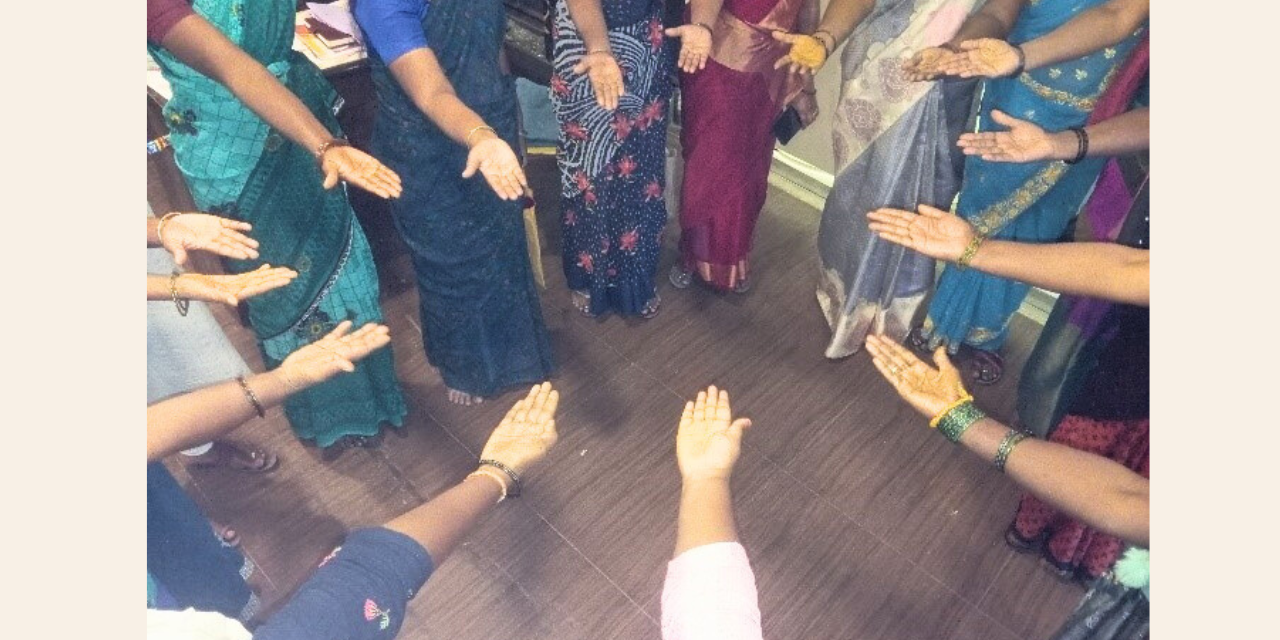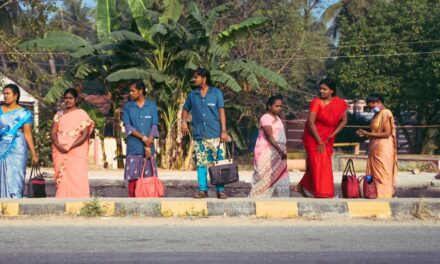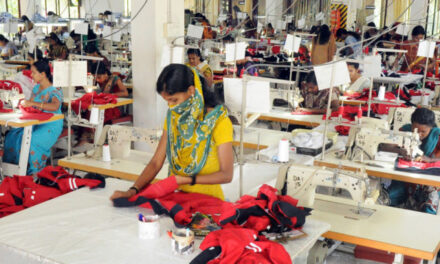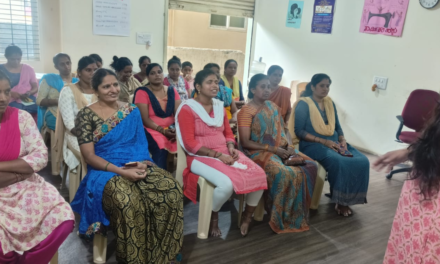A Glance Into The Lives Of Workers With Bite-Sized Stories From Factories, Homes & Communities. Read About How A Leather Homeworkers’ Collective in Tamil Nadu Is Challenging Unfair Wages While Bengaluru’s Garment Factory Workers Address Access To Social Security
Solidarity & Leadership
Coming Together Amidst Slowdown: Homeworkers in Ambur, Tamil Nadu’s leather goods hub, are facing a double challenge: a raging industry-wide slowdown threatening their livelihoods and declining wages due to fewer work orders and meager piece rates. Despite these hardships, they are demonstrating remarkable resilience.
In the Thuthipet panchayat of Ambur district, a group from a 600-member homeworker collective recently rejected a work order they deemed unfair. The order involved complex stitching, requiring more time and effort. They demanded a higher rate (Rs. 13 per pair) but the local agent, with a monopoly in the area, took the work elsewhere. Yet, the Thuthipet workers stood firm.
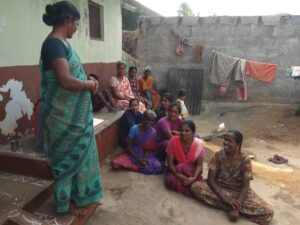
The collective is now challenging traditional gender roles and encouraging civic participation. Twelve women from the collective, along with shoe factory workers, attended a Grama Sabha meeting, traditionally dominated by men. They raised crucial issues like improving local government services.
Factory workers are taking action as well. A Cividep workshop empowered them to address issues such as high production targets and a lack of grievance mechanisms. Some participants led peer-learning sessions (as seen in pic), showcasing a growing commitment to worker empowerment and collective action.
Worker Support
Finding Strength in Numbers: Cividep’s partner organisations in Bengaluru have been leveraging collective action to address factory-level issues, from tackling pay discrepancies to navigating complex social security benefits. In one instance, workers at a local garment factory had concerns regarding deductions for PF and ESI, without any deposits reflected in their PF accounts. Supported by the Munnade Social Organisation, they sent a letter to the factory, which, realising the workers’ collective stance, promised to investigate.
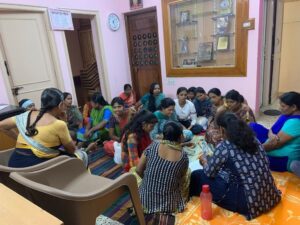
Similarly, with the help of Sadhana Trust and the Garment Labor Union’s (GLU) , a garment worker received a settlement that had been pending for months. Yet another worker rectified discrepancies in her identity documents to ensure her mother’s access to public healthcare.
Beyond resolving individual issues, larger discussions on long-standing problems faced by workers are being initiated. For example, Samruddhi Trust recently began facilitating discussions to address unequal PF distribution among workers of the same factory. These organisations, with the support of Azim Premji Foundation, are collaborating to support garment workers in Bengaluru. Together, they are equipping workers with the right information and strategies to address individual and collective issues.
Worker Education
Preying On Vulnerability: Two women, lured by a higher-paying job offer shared on WhatsApp, faced a harrowing experience. Disguised as a contract agent, a woman invited them home to discuss a potential job opportunity with a prominent electronics factory in Sriperumbudur SEZ in Tamil Nadu. She then demanded money and refused to let them go. Thankfully, the women were able to share their live location with Cividep’s local field team.
The team swiftly connected them with local authorities – the police inspector and the Village Administration Officer – who were able to quickly rescue the women. Though the police issued a warning, an FIR wasn’t filed per the complainant’s request.
Most workers in the Sriperumbudur electronics manufacturing hub are primarily recruited by local contractors. They are intra-state and inter-state migrants who have limited awareness of their rights and hardly receive any legal documents on their employment terms. This incident highlighted the importance of worker awareness. The field team is actively educating workers to:
- Be wary of job offers that come with unrealistic promises
- Request meetings in public spaces or official offices, and avoid private spaces
- Reach out in case of risk or emergency
(Updates: Kohila Senbagam, Pramod Kumar, Gokhularaj R)

